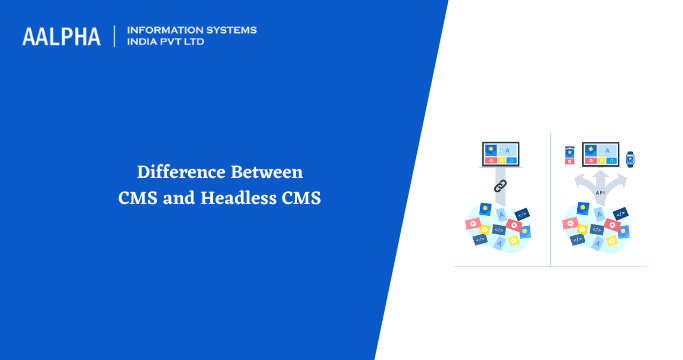Whether you’re creating a website for personal use or have been entrusted with creating one for business, you’ve almost certainly heard of a content management system or “CMS.” A content management system is a critical component of a contemporary website since it enables the administration of digital material for an application or collection of apps without creating or constructing new pages. This system manages everything from your written material to your visuals and enables simple site control.
While content management systems come in various flavors, there are only two broad categories that can be readily referenced: standard CMSs such as WordPress and headless CMSs such as Contentful. Each option is possible based on your scenario, architecture, and long-term content management objectives. For some sites, a standard content management system is sufficient. Others will benefit from a headless CMS.
Did you know? By 2025, the global CMS market size is projected to reach USD 116.2 billion.
Difference Between CMS and Headless CMS
Traditional CMS
Over the past decade, the emphasis on websites has been on the marriage of the content management system and the site’s design. Having the CMS integrated into the site design has made it simple to update material without incurring the expense associated with manual page updates through HTML development, content and file transfers via FTP, etc.
A typical content management system (CMS), such as WordPress or Drupal, is a monolithic program that combines the front-end and back-end in a clean and simple application codebase. They include everything from the content database to the display layer.
-
Pros
- A single system supplies the whole of the property.
- Simple management of all content
- Utilize themes and templates to exert control over the front-end design.
- Support from large communities
- Reduced technical entrance barrier
-
Cons
- Produce just website content (the same material cannot be delivered easily on other devices).
- Scalability is not necessarily an issue
- Requires CMS-specific developers
- Flexibility is limited.
- Maintenance and improvements take more effort and money.
When to Use a Traditional Content Management System
Traditional content management systems (CMS) are still great technologies that perform well for several deployment scenarios. A classic CMS may be the best option if you’re constructing a website for yourself, a small company, or even an enterprise solution that does not need content sharing with other digital sites.
You can get started quickly and administer your site from a single location. Although a conventional CMS is primarily a single-site solution, many include multi-site and API access to exchange digital assets with other apps through plugins. These plugins each have their own set of advantages and disadvantages.
Headless CMS
A headless CMS distinguishes itself by avoiding any direct connection to a front-end. While standard content management systems (CMS) manage both the content and the front-end, a headless CMS focuses only on the content. After the material is developed and changed, it is published using an application programming interface (API). The headless CMS makes no changes or modifications to the front end. Moreover, this gives you the freedom to distribute your material as many ways as possible, independent of how it is displayed.
If it helps, think of the headless CMS as a novelist writing their book. The author generates the content with the help of a headless CMS, and the publisher prepares and distributes it to the public in various formats such as hardcover books, e-books, and other media. Although the methods of ingestion may differ, the chemical itself stays consistent.
-
Pros
- The content is prepared for delivery to any device.
- With the headless API, developers can focus on appearance rather than content.
- Front-end-independent (A headless CMS is unconcerned about the destination of the content or the way it is presented. It just serves it up, enabling developers to use the frameworks and tools of their choice.)
- Produce content without worrying about being contained in a single system.
-
Cons
- There is no preview of the material. (Some systems permit creating a preview integration, although this incurs extra upfront costs.)
- Additional integration/configuration work upfront
- Creating a mental image/client
When to Use a Headless Content Management System
A headless CMS is not always the ideal option, and you must carefully analyze your situation. In the following situations, we advocate adopting a headless CMS:
- Websites and web applications use JavaScript frameworks such as React, Angular, or VueJs.
- Native mobile applications
- Any setting in which you must simultaneously deliver material to several platforms
- When creating a static website using a static site generator
Wrapping Up
While there is no one perfect solution, we hope you can see the benefit of evaluating your alternatives when choosing the best content management system for your needs and requirements. Except for these two primary categories, all taste differences are subjective to the individual. Before selecting, it is necessary to evaluate the UI and API of each of the various headless CMS systems available to determine which one you and your content suppliers will be most comfortable with.
Contact WordPress development company to know more difference between CMS and headless CMS.
Also read: What is Headless eCommerce
